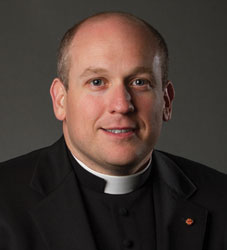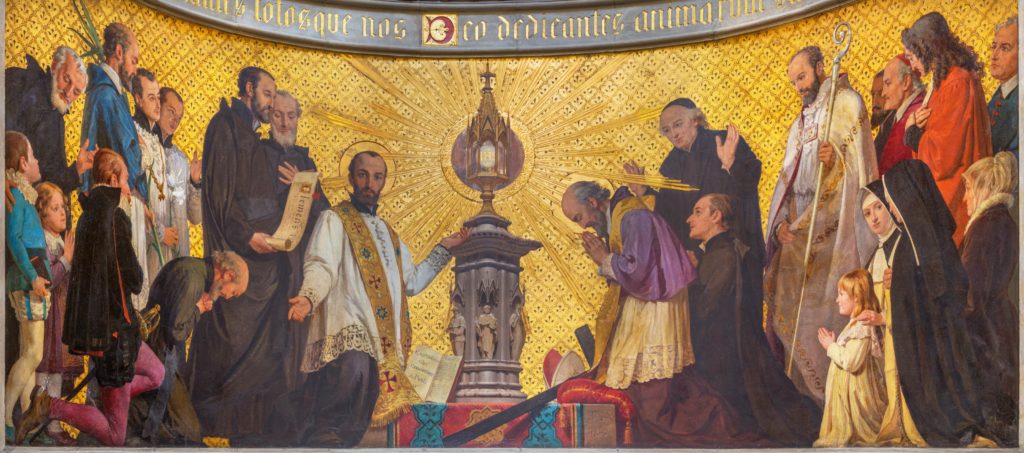 The other day I came across this comment on Catholic social media: “We often think saintliness is the product of the right circumstances. If only we had more time, we would pray. If only there were no annoying people, we could love others. If only nothing bad ever happened, we might be thankful and patient. But holiness isn’t a matter of perfect circumstances. They don’t exist. Holiness is what we do with imperfect circumstances.”
The other day I came across this comment on Catholic social media: “We often think saintliness is the product of the right circumstances. If only we had more time, we would pray. If only there were no annoying people, we could love others. If only nothing bad ever happened, we might be thankful and patient. But holiness isn’t a matter of perfect circumstances. They don’t exist. Holiness is what we do with imperfect circumstances.”
The problem of evil, inside and outside of the Church, is nothing new. The problem is that we become complacent in the struggle. Like a war that drags on and on, there are times when there are lulls in the fighting and the danger of being caught off guard becomes very real. We may be tempted at times to look for the lulls, to desire a misunderstood notion of peace, namely a lack of hostility or struggle, but for the Christian, this can never be the case.
In Matthew’s Gospel, the Lord Jesus states: from the days of John the Baptist until now, the kingdom of heaven suffers violence, and the violent are taking it by force (Matthew 11:12). Evil is at work in the world and it seeks to do two things. First, it seeks to prevent souls from coming to Christ and entering into his kingdom, or, second, it seeks to separate those souls from Christ who have already chosen him and life in the kingdom. Each of us individually is called to respond to the problem of evil. We need to answer the call to holiness. We need to answer the call to become saints.

Now that sounds like a tall order, but it isn’t. Let’s take a moment and look at the big “S” saints, those who have been formally canonized by the Church. Why were they canonized? It was not because they were miracle workers (God works the miracles) or because of the pious legends associated with them, but rather because of the quality of their lives. For those who did not suffer martyrdom, before the Church ever looks at purported miracles, it first looks into the life of a candidate for what is termed heroic virtue. This type of virtue is not to be confused with perfection. Heroic virtue is the result of an imperfect soul living this life in cooperation with the grace of God. It is living defiantly for Christ in the face of evil and the temptation to be absorbed by self-interest.
The Saints have not been declared so by any unique merit of their own, but because they allowed the grace of God to be living and effective in them, by living ordinary lives in extraordinary ways, many times in adversity. The same graces that were offered to them are offered to each of us. Like the saints, we have to want the grace of God, to cooperate with it, and, at times to seek that grace out. If we are simply waiting for the perfection of times and circumstances, then we are going to have to wait until the Lord’s return when he will make all things new. We cannot wish dark times away. We are called to act, to be light that scatters the darkness. The world needs our witness. The world needs us to be striving to become saints.
In the great novel The Fellowship of the Ring, part of The Lord of the Rings trilogy by J. R. R. Tolkien, an unlikely character named Frodo is given a tremendous and unenviable task of having to destroy a ring associated with a great and evil power. To destroy the ring will take great effort and sacrifice on his part. He laments this task to his friend and guide named Gandalf.
Frodo states: “I wish the Ring had never come to me. I wish none of this had happened.” Gandalf replies: “So do all who live to see such times, but that is not for them to decide. All we have to decide is what to do with the time that is given to us. There are other forces at work in this world, Frodo, besides the will of evil.”
God’s grace is present in the world and he wants that grace to be manifested and working in our lives each day. When we want that too, then evil is pushed back, darkness recedes, and the Kingdom is advanced. Times are not perfect, life is challenging, but the Kingdom is worth fighting for. Answer the call to become a saint, not waiting until heaven, but striving for it here and now.
Father Christopher House is the Rector of the Cathedral and serves in various leadership roles within the diocesan curia, namely Chancellor and Vicar Judicial.